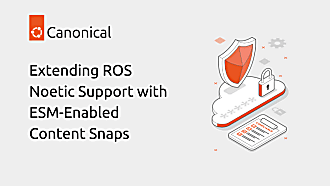Sarah Dickinson
on 9 January 2019
Apellix engineers safer work environments with Ubuntu powered aerial robotics

In 2016, 16% of all workplace deaths in the US were attributed to falls. Apellix, a Florida-based start up, who specialise in aerial robotics aims to reduce this number by using their drones in place of workers to complete tasks in elevated or dangerous environments. In tandem, these same aerial robotics can also reduce the costs of monotonous or time-consuming jobs to save money.
Data insights and efficiency enhancements are often seen as two of the biggest benefits that the internet of things can bring to organisations. However, the potential advantages of implementing IoT span far wider than business processes and analytics. As Apellix show, it is no exaggeration to state that IoT can save lives by replacing humans in certain scenarios, with technology.
Using US Navy Destroyer and Aircraft Carrier ships as one example, find out how Apellix have built a software-defined drone running Ubuntu to enable an autonomous and highly accurate way to overcome such issues.
Download the case study below to find out more including:
- The industries and use cases from maritime, to energy, and infrastructure that aerial robotics can address to provide an alternative to putting workers at risk.
- How Apellix, using a software-led approach, has facilitated new levels of accuracy and situational awareness beyond what a human could gauge.
- How the use of Ubuntu on the aerial robotics and in the cloud has cut their development time in half.



